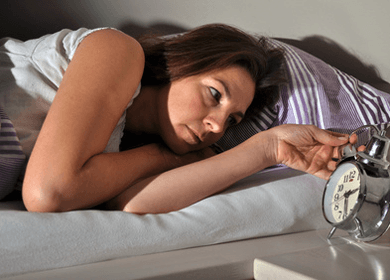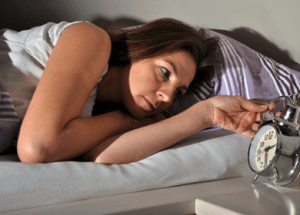
If you’re one of the millions of Americans who have trouble sleeping – and it’s said that as many as 25 to 45 percent are affected by sleep problems, a new study has found what you eat can play a big part in how well you snooze.
Our diet obviously has a relationship with how we feel during the day, including how much energy we have and how well we’re able to focus and even our mood, but most are not aware of how it affects our sleep patterns and there have been few scientific studies that have explored the connection.
According to US News HealthDay, people who typically get five or few hours of sleep eat a diet with less variety and a lower intake of foods with lycopene, found in red and orange-colored foods like tomatoes and carrots. It was also associated with a lower intake of vitamin C, water and selenium.
The bottom line is those who eat a wide variety of healthy foods have the healthiest sleep patterns, and we already know that those who tend to get between seven and eight hours of sleep each night are more likely to experience optimal health and well-being.
While a poor diet can lead to sleeping troubles, a lack of sleep has also been shown to cause weight gain – causing a double whammy of negative effects that contribute to the vicious cycle that many experience when it comes to trying to maintain an ideal weight.
 Sleep deprivation causes elevated cortisol levels, a hormone that stimulates fat and carbohydrate metabolism that provides energy and regulates blood sugar levels. The fat that results from an increased level of cortisol is typically deposited in the abdominal area – which is shown to be related to a higher risk of heart attack.
Sleep deprivation causes elevated cortisol levels, a hormone that stimulates fat and carbohydrate metabolism that provides energy and regulates blood sugar levels. The fat that results from an increased level of cortisol is typically deposited in the abdominal area – which is shown to be related to a higher risk of heart attack.
What can you do if you’re one of the multitudes of people who are caught in this vicious cycle?
- Eat a healthy, balanced diet packed with foods that are rich in antioxidants including plenty of fruits and vegetables and foods rich in omega-3s like seeds, nuts, olive-oil and wild-caught salmon. Spice up your food with ginger and turmeric.
- Avoid processed, fast foods, trans fats, fried foods and artificial food additives like the plague; limit sugars, alcohol, feedlot-raised meats.
- Try to incorporate some form of physical exercise every day.
- Practice meditation or deep breathing before bed time to increase the odds of better sleep.
– The Alternative Daily

